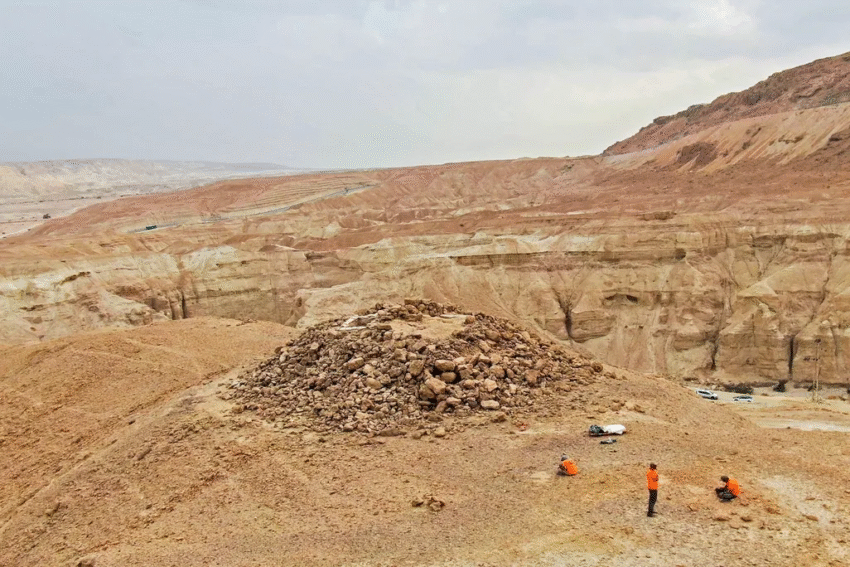From the “we don’t want to deal with this desk”:
Not too long ago, there was a lot of coverage concerning a “pyramid” found in the Judean Desert. The Kingdom News staff took a hard pass, because it looked more like a pile of rocks than a pyramid. A pile of rocks is generally a way to mark a grave. The Smithsonian appears to be casting more light on the find:
“The heap is five or six meters [16 to 20 feet] high above the surface of the hill, made of huge stones,” as Klein tells the Times of Israel’s Rossella Tercatin. “At first, we thought the site could be just a tomb, but later, we noticed the shape of the original walls, and we understood that the structure was a building. … Eventually, we identified it as a tower or fortress dating back to the Hellenistic period, or 2,200 years ago.”
The region’s Hellenistic period—named for pervasive Greek influence—began back in 332 B.C.E., when Palestine was conquered by Macedonian King Alexander the Great. After that, the wider region was ruled by two Macedonian empires: Egypt’s Ptolemaic kingdom, a dynasty founded by Ptolemy I Soter in 305 B.C.E., and the Seleucid kingdom, founded by Seleucus I Nicator in 312 B.C.E. Both founders had served as generals under Alexander the Great.
At the site of the recently discovered pyramid, researchers have uncovered bronze coins representing this history. Some are stamped with marks of the Ptolemaic dynasty, and others are marked with the Seleucid king Antiochus IV Epiphanes. source: https://www.smithsonianmag.com/smart-news/this-ancient-pyramid-found-in-the-judean-desert-may-have-been-a-ptolemaic-tax-takers-post-180986319/
A collapsed watchtower makes more sense than a pyramid. If it was taken down quickly in a siege, it seems likely that someone decided to commemorate the loss by burying the items there that were associated with whomever it was who died with the tower. Antiochus, of course, was the original “very bad boy” of the region who meets the definition of a kind of Anti-Messiah figure. Maybe the tower was one of his. If so, the fact it became a grave is a fitting end.

